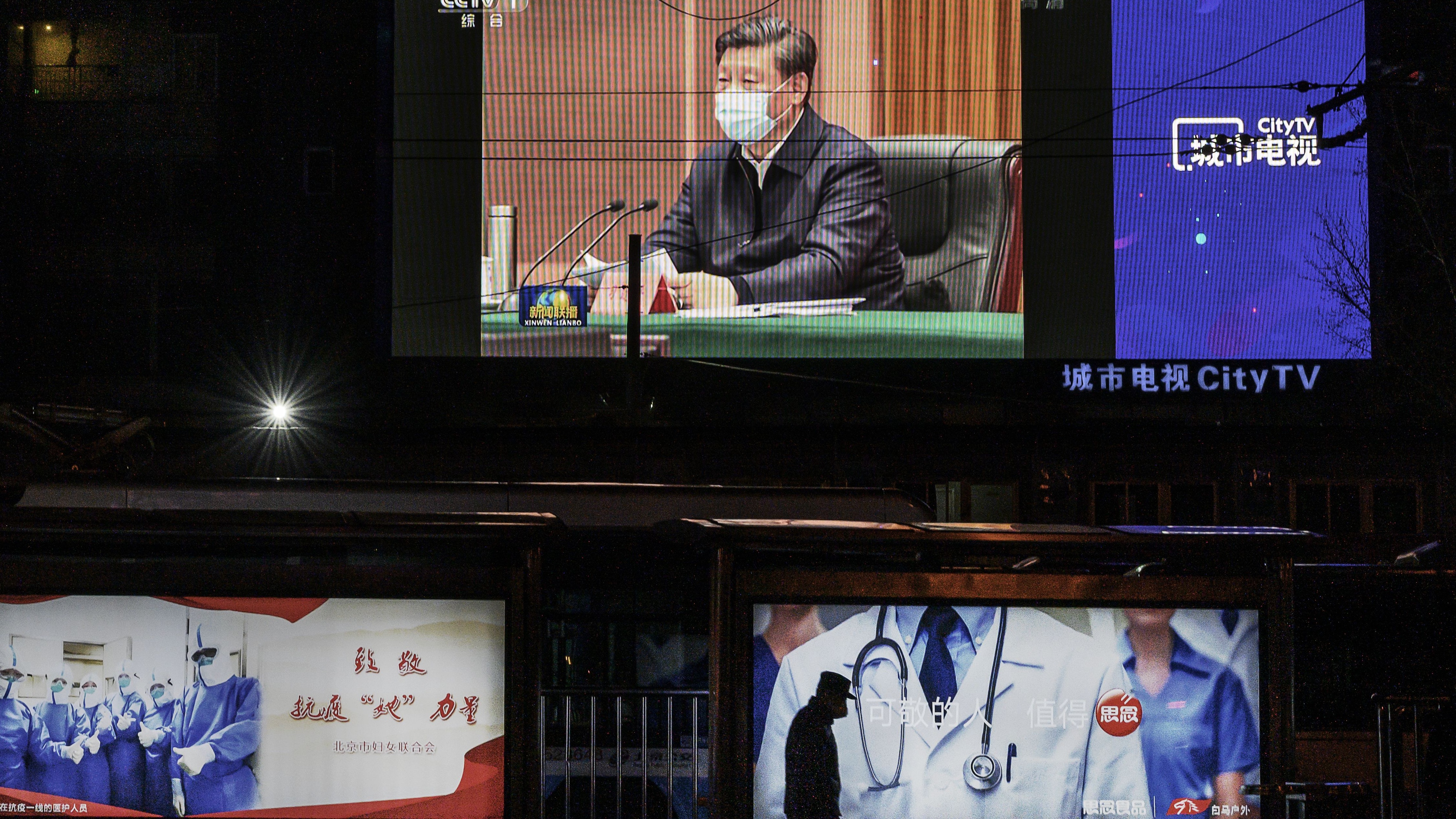48 Group Club: why China is ‘grooming’ Britain’s business and political elite
London club forced to deny allegations of improper links to Beijing

A free daily email with the biggest news stories of the day – and the best features from TheWeek.com
You are now subscribed
Your newsletter sign-up was successful
An elite group of British business and political leaders with strong ties to China is being groomed by President Xi’s government, a new book has claimed.
Hidden Hand, an expose of Chinese influence networks, suggest that Beijing’s influence in Britain through the Chinese Communist Party is far-reaching and unstoppable.
Stephen Perry, the London businessman who chairs the 48 Group Club, has launched legal action in an attempt to stop the book being published in the UK and Canada, Hidden Hand’s co-author, Clive Hamilton, told The Times.
The Week
Escape your echo chamber. Get the facts behind the news, plus analysis from multiple perspectives.

Sign up for The Week's Free Newsletters
From our morning news briefing to a weekly Good News Newsletter, get the best of The Week delivered directly to your inbox.
From our morning news briefing to a weekly Good News Newsletter, get the best of The Week delivered directly to your inbox.
What is the 48 Group Club?
The 48 Group Club has its headquarters in London, where it keeps a low profile and serves as a political and business networking hub for its 500 members. The book claims it is this networking “through which Beijing grooms Britain’s elites”.
Former deputy prime minister Lord Heseltine, who is a founding patron, says the group provides a support network for those involved in trade with China.
But Hidden Hand says a meeting between Perry and President Xi reveals the significance of the club in China’s efforts to exert influence in the UK.
A free daily email with the biggest news stories of the day – and the best features from TheWeek.com
At their meeting, Perry praised Xi’s vision “of a community with a shared future for humanity”, The Times reports.
He was the only Briton among ten foreigners awarded the China Reform and Friendship Medal in 2018 to mark the 40th anniversary of the economic reforms, according to the state-controlled China Daily newspaper.
“China is already enormously influential in the world, but I think there’s much, much more to come,” Perry reportedly said at an awards ceremony at the Chinese embassy in London in 2019. He described the award as “the most breathtaking moment of my life”, the newspaper says.
The club took down its website after the book’s publication, but an archived version of the site from December shows current and former MPs, peers, chief executives, and prominent individuals from academia and media as “fellows”.
Jack Straw, a former Labour home secretary, told The Times that he had never heard of the club “so why I’m on their website I’ve no idea”.
The board of the 48 Group Club confirmed it was taking legal action against the authors of the book, adding that the club “is not in any sense a vehicle for Beijing”. Instead, the group describes itself as “an independent body promoting understanding of China and positive Sino-British relations, which it believes “to be in the UK’s national interest”.
Why does China want UK influence?
A report published by the Royal United Services Institute (Rusi), a defence and security think-tank, said it would be “naive” and irresponsible” to think China would not exploit UK infrastructure if it had the chance.
The report, written by Charles Parton, a former British diplomat who spent most of his 30-year career working on China, also warned of the risk of interference from China in areas including network infrastructure, academia, politics and technology, reports the BBC.
It describes a practice called “elite capture”, in which former politicians, civil servants and businessmen are appointed to lucrative jobs with Beijing links after they leave office, in order to promote Chinese interests.
China’s aim in influencing the UK is not simply to disrupt, like Russia, Parton says, but to promote the legitimacy of Communist Party rule in the country and limit dissent against it, as well attempting to build support for its policies overseas.
–––––––––––––––––––––––––––––––For a round-up of the most important stories from around the world - and a concise, refreshing and balanced take on the week’s news agenda - try The Week magazine. Start your trial subscription today –––––––––––––––––––––––––––––––
How much influence does China have in the UK already?
The threat to UK from Chinese influence and interference is significant, according to senior politicians, academics and former diplomats who have spoken about the risk to British institutions.
British universities are to be given comprehensive security guidelines on how to protect themselves from interference by foreign powers, because of growing fears about the influence of China on campuses, The Times reported last weekend.
Universities UK (UUK), the umbrella group for vice-chancellors, will introduce the guidance, which has been developed with government support.
But the authors of Hidden Hand say the advice comes too late.
“In our judgment, so entrenched are the [Chinese] influence networks among British elites that Britain has passed the point of no return and any attempt to extricate itself from Beijing’s orbit would probably fail,” wrote Hamilton, a professor of public ethics and CCP expert at Charles Sturt University and his co-author, Mareike Ohlberg, a senior fellow in the Asia programme of the German Marshall Fund.
Earlier this year, the UK government gave the green light to Chinese firm Huawei to build elements of Britain’s 5G network, despite US demands to ban Huawei from UK networks.
A US delegation told UK ministers that “it would be madness” to work with the Shenzhen-based firm. The American government believes China would exploit its role in UK infrastructure to spy on UK targets or sabotage critical networks.